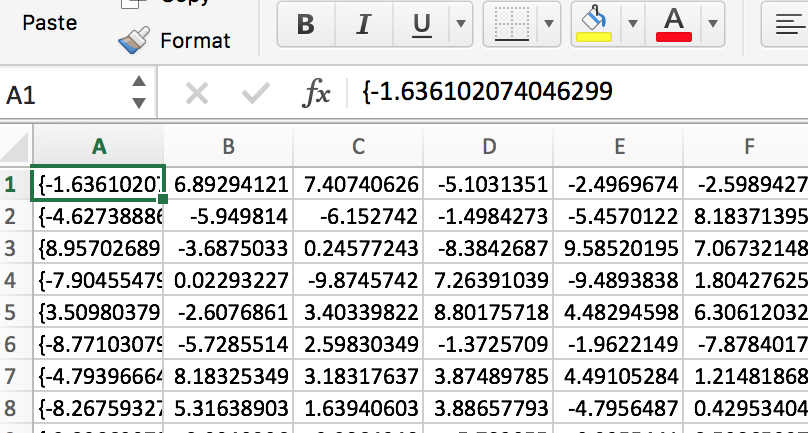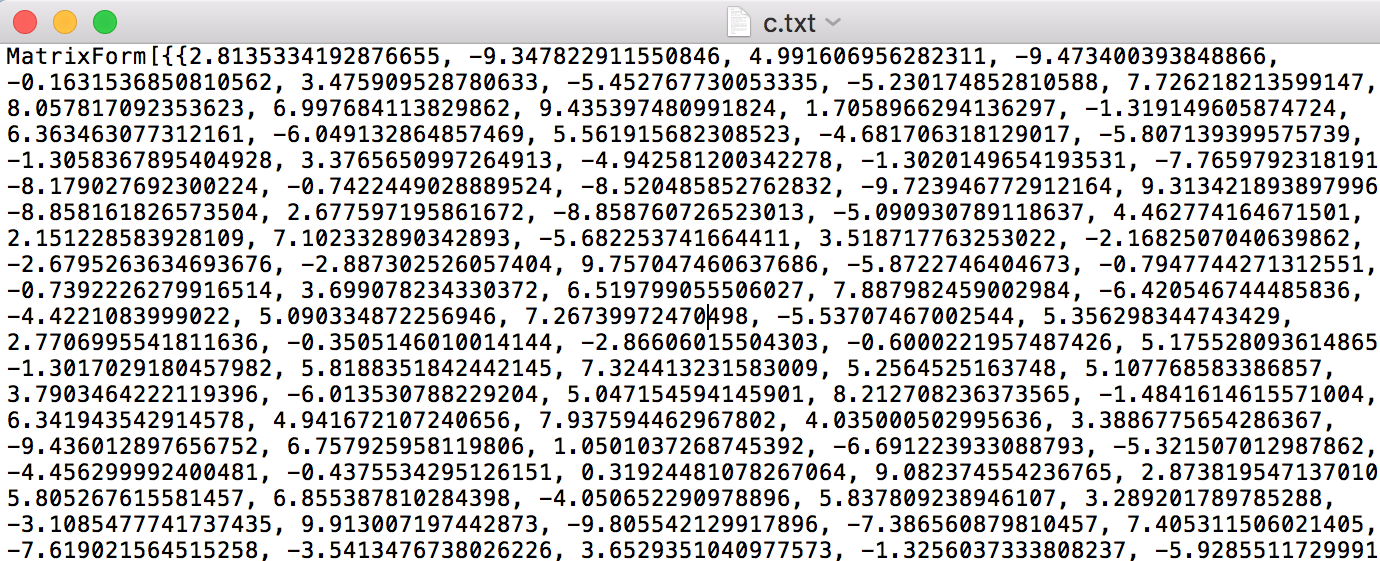Hello, I am doing a 2D CFD calculation using my own code (not NDSolve) and I would like to find the most efficient way of exporting the results for every time step. For that I created a toy problem
a = RandomReal[{-10, 10}, {600, 600}];
AbsoluteTiming[
Export[NotebookDirectory[] <> "/d.mat", a]; ]
This is the fastest one I found but it has two problems. First, it requires MATLAB and the second is even in MATLAB I don't have the direct access to the a matrix, i.e., I have to do the following.
vxm=load('a.mat'); a=vxm.Expression1;
If I export as .txt I have problems with { shown in the figure below or if I try MatrixFormat[a] and export as .txt. I have the following problem.
or if I try MatrixFormat[a] and export as .txt. I have the following problem. 
On top of everything, .mat takes 0.15 seconds and .txt takes 0.8 seconds (.csv takes 7 seconds) . Imagine I had to write to a file maybe 100000 times. That is a lot of seconds :) . Any advice to make exporting fast and generic?